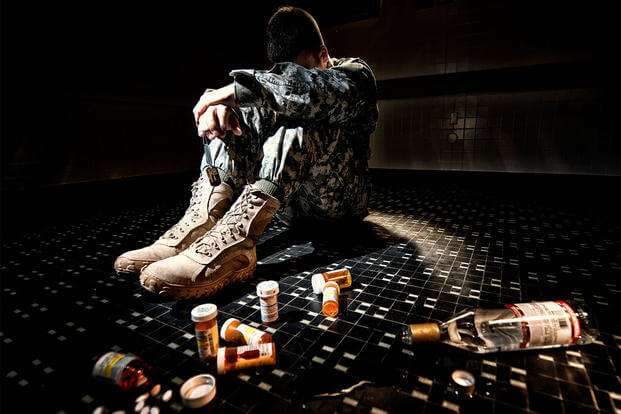Depression and substance use disorders can be two of the invisible wounds of war -- and understanding them can give caregivers the tools they need to help their veterans.
PsychArmor, a non-profit dedicated to bridging the military-civilian divide by providing resources to help community members and others engage veterans, has free video courses on a variety of military-related issues, including depression and substance use. These videos are part of PsychArmor's Invisible Wounds of War at Home caregiver and family video series.
In the video about depression, Heidi Kraft, a clinical psychologist, Navy veteran and PsychArmor's clinical director, helps caregivers and families understand what depression is, what some of the symptoms are and how to find help.
Depression is a very common problem among veterans, Kraft says. It can impact mood and physical health. Depression can be a vicious cycle, making it difficult to recover from anything and, for veterans, harder to transition into the civilian world.
It is a "very real and complex medical condition," Kraft says.
The symptoms of depression can include feeling sad and a sense of hopelessness or losing interest in things the veteran used to enjoy. Hopelessness, Kraft said, is especially concerning because it can often be linked to thoughts of suicide.
But there are things families can do to help. Watch the video to learn more.
Like the rest of society, veterans can suffer from substance use disorders. Substance use disorders are currently diagnosed with a unique category for each substance, Kraft says. Clinicians have realized that problem use of a substance might look different for each person.
The number of symptoms a person has is combined with how they impact that person’s life before substance use disorder is diagnosed, Kraft says. Problem substance use can range from mild to severe, depending on how it impacts healthy functioning.
Substance use disorders require a lifetime of management and the desire to seek treatment. While Kraft does not believe substance use disorders to be curable, they are treatable -- and the treatment works, she says. Those with substance disorders can still lead hopeful and fulfilling lives.
How can you get your veteran help with a substance use problem? Watch the full video to learn more.
Other videos in this series:
Caregiver Courses Help Spouses






























